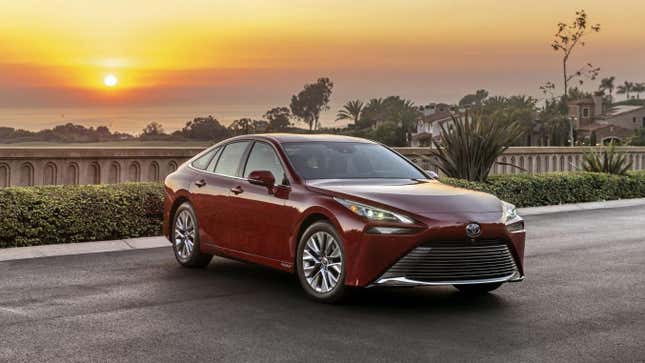
Toyota is still very keen on selling lots and lots of hydrogen vehicles, but because they haven’t seemed to really catch on in North America, the Japanese automaker is looking elsewhere: namely, Europe and China. It’s all part of a push to sell 200,000 hydrogen-electric vehicles by 2030.
According to Reuters, the strategy change is the first from Toyota since it started up its separate, 1,350 person, hydrogen-focused unit earlier in July in an effort to expand the application of fuel-cell tech into more of its products like power generators and commercial trucks.
It makes sense that Toyota is doing something, after all, the outlet reports that Toyota sold just over 3,900 fuel cell vehicles in 2022. That works out to less than 1 percent of its total global sales of 9.5 million vehicles. Going from 3,900 to 200,000 in just seven years won’t exactly be an easy task, but a representative for Toyota reportedly said that the number “can be achieved.” Reuters says Toyota is expecting its global market for fuel cells to grow to about $35 billion by 2030 – that’s 15 times higher than it was back in 2020.
Part of the focus on Europe and China is because those two places both already have higher hydrogen demand than North America. That means Toyota should in theory be able to bring costs down, and it would also like to strengthen ties with other companies, according to Reuters.
Hydrogen vehicle uptake has been slow in North America to say the least. Reuters points to issues like high costs and an extremely limited network of fueling stations as big issues. It’s a bit of a shame though when you consider the fact these vehicles can be refueled nearly as quickly as internal combustion engined cars and have just about the same range, though the infrastructure has always been the problem.

